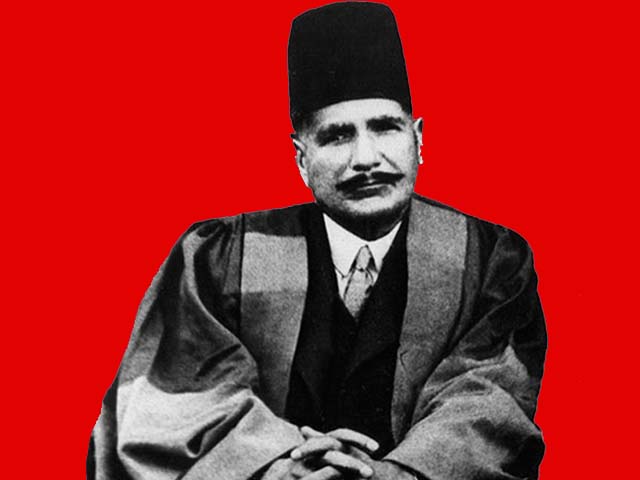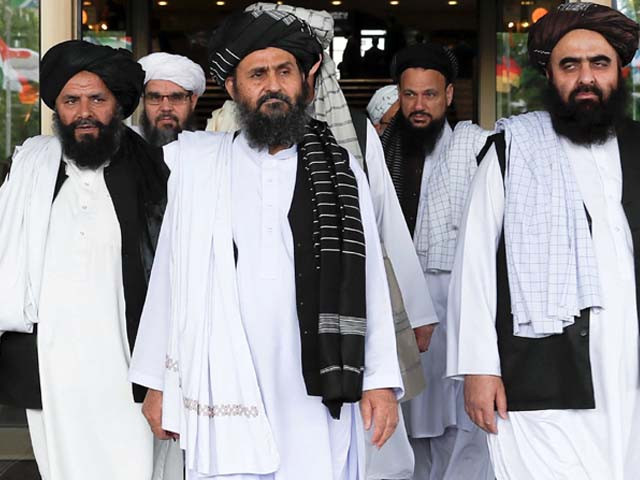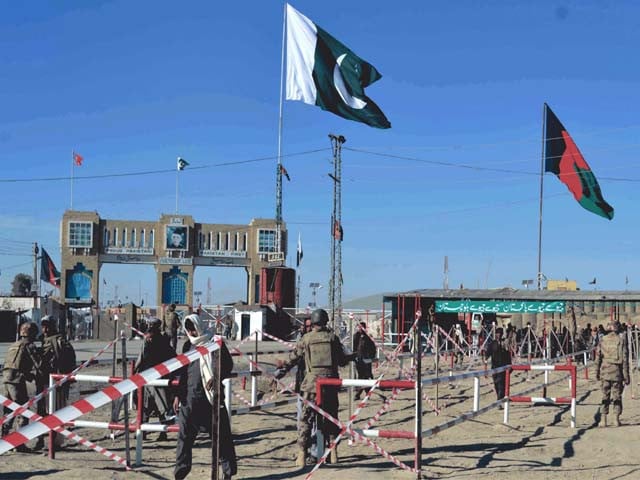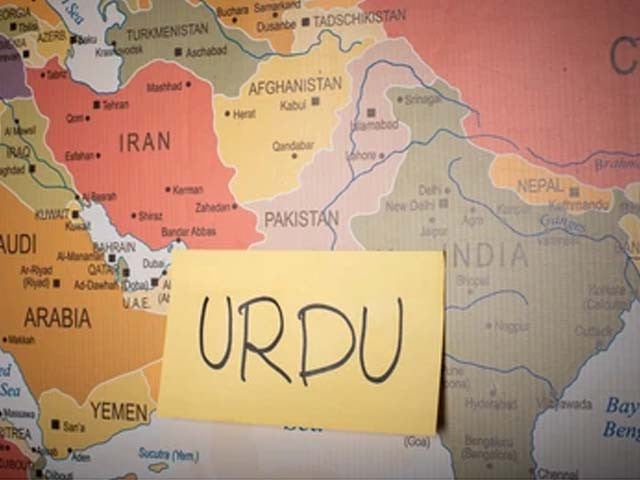
Iqbal in Afghanistan
If you had to pick one person from the Subcontinent in the 20th century who knew and loved Afghanistan more than most Afghans, it would be Hakeem-ul-Ummat Allama Mohammad Iqbal. Iqbal’s poetry is filled with references to Afghans and their country. As such, Afghans are familiar with Iqbal, and in their Persian literature and poetry circles he’s usually known as Iqbal-e-Lahori. In 1933, at the invitation of the Afghan government, Allama Iqbal visited Afghanistan. Although Iqbal was accompanied on this trip by Maulana Syed Sulaiman Nadvi (who later wrote Sair-i- Afghanistan — سیرِ افغانستان — a rather interesting account of the trip), and Sir Ross Masood (Sir Syed Ahmad Khan’s grandson), this writing will focus exclusively on Allama Iqbal’s interactions in, and impressions of, Afghanistan through his own eyes.
Allama Iqbal entered Afghanistan via the historic Khyber Pass, and arrived in Kabul in late October 1933. Iqbal described Kabul as ‘a paradise-like piece of territory, whose breeze is more pleasant than that of Shaam (Syria) and Rum (Roman Empire).’[1] At Kabul, in addition to meeting other Afghan government officials, Iqbal met with the Afghan King Mohammad Nadir Shah. The meeting took place at the Dilkusha Palace, and as a token of respect Allama Iqbal (who was six years older than Nadir at the time) kissed the Afghan King’s hand. Iqbal himself observed:
جانم از سوزِ کلامش در گداز
دست او بوسیدم از راه نیاز[2]
His [Nadir’s] burning speech set my soul on fire
I kissed his hand out of a yearning desire
Since Iqbal regarded Nadir as a pious, wise, and exceptional ruler of an independent Muslim country, kissing Nadir’s hand was a sign of utmost respect on the part of Allama Iqbal. Afterward, Iqbal presented a copy of the Holy Qur’an to the Afghan King, and advised him on the benefits of observing its commands. While Iqbal was finding his meeting with Nadir Shah inspiring, the best was still to come.
During the meeting, the muezzin recited the Azan for the Asr prayer. Nadir Shah led the Asr prayer as the Imam, and Iqbal offered his prayer as a Muqtadee (follower) behind Nadir Shah. Iqbal had long wished to offer prayers behind the ruler of an independent Muslim country. At Kabul, Iqbal’s wish was fulfilled. As regards the quality of the prayer, Iqbal stated:
رازهایی آن قیام و آن سجود
جز ببزم محرمان نتوان کشود![3]
The secrets of the qiyam and sujood
Could only be disclosed to confidants
Furthermore, in Kabul Iqbal visited the tomb of the founder of the Mughal Empire Zaheer-ud-Din Mohammad Babur, located at Bagh-e-Babur, where he had been buried according to his will. In 1904-05 Iqbal had remarked:
سارے جہاں سے اچھّا ہندوستاں ہمارا
ہم بُلبلیں ہیں اس کی، یہ گُلِستاں ہمارا
Our Hindustan is better than the entire world
We are its nightingales, and it is our garden
The above is the mat’la (opening verse) of one of Iqbal’s earlier ghazals which would become known as Tarana-e-Hindi. In the three decades between 1904 and 1933, however, Iqbal had undergone a revolutionary change in his outlook on life and religion. Thus at Babur’s tomb, Iqbal thought differently, and expressed the following:
خوشا نصیب که خاک تو آرمید اینجا
که این زمین ز طلسم فرنگ آزاد است
هزار مرتبه کابل نکوتر ز دلی است
که آن عجوزه عروس هزار داماد است
You (Babur) are lucky that your clay is rested here
Because this land (Kabul) is free of European spell
Kabul is better than Delhi a thousand times
As the latter is the wife of a thousand grooms[4]
From Kabul, Allama Iqbal proceeded to Ghazni — the summer capital of the Ghaznavid Empire. At Ghazni, Iqbal visited the tombs of Hakeem Sanayee Ghaznavi (a fellow Persian poet) and Sultan Mahmud Ghaznavi. At Ghazni’s old city, Iqbal felt sorry for the former capital of the Ghaznavid Empire that now lay in ruin. This prompted Iqbal to compose a long, passionate poem about the current status of the Muslim Ummah, whom he thought had deviated from the righteous path.
Next, Iqbal visited Kandahar — the former capital of the Durrani Empire — before returning to India through the Chaman border crossing. Iqbal described Kandahar, like Kabul, a ‘paradise-like’ place:
قندهار آن کشورِ مینو سواد
اهل دل را خاکِ او خاکِ مراد[5]
Kandahar is such a paradise-like place that
For the people of the (loving) heart, its soil is (like) the soil of shrines
As is the case with most Muslim visitors to Kandahar, Iqbal paid a visit to the Kharqa-e-Mubarak (خرقهٔ مبارک), the cloak of the Prophet Mohammad (PBUH). The Prophet’s (PBUH) cloak is housed in a one-story building across from the Kandahar Governor’s Office —formerly Arg-e-Shahi, Royal Citadel, from which Ahmad Shah Durrani ruled his domain. Given Iqbal’s devotion to Islam and the beloved prophet (PBUH), it must have been an emotional moment for him.
آمد از پیراهن او بوی او
داد مارا نعرهٔ الله هو[6]
His (the Prophet’s) fragrance came from his cloak
Which led us to chant Allah Hoo[7]
A visit to Ahmad Shah Durrani’s tomb, which is located in the same complex as the Prophet’s (PBUH) cloak, was also on Iqbal’s itinerary. At Ahmad Shah Durrani’s tomb, Iqbal praised the conqueror’s courage, piety, and statesmanship.
از دل و دستِ گهرریزی که داشت
سلطنتها برد و بیپروا گذاشت
نکتهسنج و عارف و شمشیرزن
روح پاکش با من آمد در سخن
Due to his generous heart and hands
He abandoned fearlessly the kingships that he had won
He was punctilious, mystic, and swordsman
His virtuous spirit sparked up a conversation with me[8]
From Kandahar, Iqbal returned to India in early November. Nearly a week after the conclusion of Iqbal’s Afghanistan trip, on November 8 (a day before Iqbal’s 56th birthday), Nadir Shah was assassinated, while handing out prizes, by a student in Kabul. The same day, Nadir’s son Mohammad Zahir was crowned as king by the Afghan Royal Family.
The love and affection between Iqbal and the Afghans was mutual. When Iqbal became sick in 1934, and he was prescribed melons and pistachios, the Afghan government under Zahir Shah made sure that these items were delivered to Iqbal from Afghanistan. After Iqbal passed away, the Afghan government provided precious lapis lazuli from Afghanistan for Iqbal’s tomb.
Both sides of the headstone that the Afghan government gifted to Iqbal’s tomb have interesting inscriptions on them. The side facing his resting place, in addition to the Arabic inscription (إن من الشعر لحكمة وإن من البيان لسحرا) ‘Some poetry has wisdom and some prose has magic,’ which some have ascribed to the Prophet (PBUH), has one of Iqbal’s touching Persian poems from his Payam-e-Mashraq.
نه افغانیم و نه ترک و تتاریم
چمن زادیم و از یک شاخساریم
تمیز رنگ و بو بر ما حرام است
که ما پروردهٔ یک نو بهاریم
We are neither Afghans, nor Turks or Tatars
We are from the same garden and the same branch
Discrimination based on color is prohibited amongst us
As all of us have been cultured by the same spring
On the other side of the headstone, at the top, it says (هو الغفور الرحیم), He (Allah) is Forgiving and the Most Merciful, followed by a seven-line Persian inscription. The inscription describes ‘Doctor Iqbal’ as ‘the poet and philosopher of the East,’ who clarified the path’ and ‘spirit of Islam to all; therefore he was received[9] by His Majesty Nadir Shah-e-Ghazi and the Afghan nation.’ Toward the end, the inscription mentions that Allama Iqbal was born in the year 1294 (of the Islamic Lunar Calendar), and passed away in the year 1357.
[1] Mohammad Iqbal, Musafir: Sayahat’e Chand Roza’e Afghanistan (Lahore: Kitab Khana-e-Tolo’e Islam, 1936), P. 12
[2] Ibid, P. 13
[3] Ibid, P. 15
[4] Iqbal is referring to the scores of invaders that had invaded and conquered Delhi.
[5] Mohammad Iqbal, Musafir: Sayahat’e Chand Roza’e Afghanistan (Lahore: Kitab Khana-e-Tolo’e Islam, 1936), P. 29.
[6] Ibid, P. 32.
[7] Allah Hoo, literally meaning God is, is a form of sufi zikr.
[8] Such metaphors are not uncommon in Persian poetry.
[9] Referring to Iqbal’s trip to Afghanistan, and his reception by King Nadir Shah and his fellow Afghans.




COMMENTS (23)
An informative and thought provoking article. I remember for the first time I read a book about allama Iqbal it was in 1974.It was a book written in Kurdish titled Muhammad Iqbal A Philosopher and A Revolutionary Poet . Later I started to read his poems in Arabic translated by famous writer Abdulrahman Azzam an Egyptian scholar. Iqbal is a famous poem throughout Muslim world his poems became songs anasheed or srood sung by youth in various occasions. As for Afghanistan and Afghan people I met many Afghan people in Iran and Canada. they are very nice people I have a good impression about them and I think allama Iqbal had the same .May Allah forgive Iqbal and all Muslims and save Afghanistan and other Muslim countries from every calamity. Thank you again for this article keep on writing similar articles.
Sir Allama Iqbal was a great poet. We can call him a leader of Muslim ummah.My grand father and Sir Allama Iqbal were once together at the platform of NGO Anjuman Himayat Islam.(AHI) in Lahore when Muslims in India were struggling for independence..AHI was founded in 1885 for the welfare of Muslims in the subcontinent.I remember my grandfather told me that Sir Iqbal came to see him at his house.This was an honor for my family.The philosophy of Sir Allama Iqbal must be part of our every curriculum..
Very welldone. Interesting and thought provoking story for our youth about the lifeline of great poet.
I visited kabul in 1966 a beautiful city sweetened by fruits of paradise. While returning I shared seat with 1st secretary of Kabul Embassy we talked a lot about Pak Afghan relations. He was very hopeful that our relations will improve soon. Then engraved in my heart is statement of Hon.Karzae.That Pak Afghan are cojoined twins .Alas nothing is there on ground. For me only way is federation May Allah give us the wisdom to achieve this.
Love you brother. Realised the importance of Afghan Nation and the Poet of East again. No doubt Iqbal had greater love and affection for Afghan soil. May Allah give us the chance to repolish the ties like Iqbal with your paradise souls of our ancestors. God bless you 🙏
Great afghan is my pice of heart, I love Afghanistan
Very informative and heart touching writing.
Thanks brother for the interesting information about the share mashreq alama iqbal remembering us his love for the the Afghan nation 👍
I hope Allama Iqbal r.a. becomes a binding bond between the Afghans on either side of the divide and the two countries I.e. make a strong confederation that would provide leadership to the muslim ummah.
A very well written peace. Informative and thought provoking.
Iqbal loved Afghanistan; a kingdom ruled by a Muslim ruler. Afghans are men of mountains and men of deserts (Mard e kohistan wa mard e sehra); Two classes of people highly respected and revered By Iqbal. It’s so unfortunate that Islamian E Hind (Pakistan) & Afghanistan do not feel strongly for each other. Just imagine the history of Kabul & Kandhar.. Pakistan zindabad, Afghanistan Paindabad.
Good information
May Allah bless you. I read Allah Iqbal in my leisure time in order to understand "concept of khudi". During study I read Iqbal did a journey of Afghanistan, I was surprised, how could that journey be difficult in 1930s. I read poems he wrote about Afghans. You as a writer filled the blank part of picture in my mind today i.e. Who invited him, who accompanied him, where he stay, who were the people he met and specially what were his comments on every aspect he came across. Great brother you will be remembered for this effort. And no doubt Allama Iqbal is part of our Soul and struggle. JazakAllah khair
Very interesting and informative.Although an avid reader and admirer of the great Allama Iqbal,I wasn't aware of certain incidents related here.Having been to Kabul myself,I find this article fascinating.
Beautifully written. May Allah keep you blessed with happiness and good health.
very good
Very useful and informative details about Allama
Great. Realy good informations should be remembered and shared to both the nations about iqbal love to Pakistan and Afghanistan.
Dr Allama Iqbal works are full of inspirational poetry and calling on a man to rise above his circumstances by his own self efforts but the fact remains it was his idea for a separate Nation for Muslims that led to the creation of Pakistan and that is why he is largely ignored in India.
Highly knowledgeable Article compiled by you . The language is highly simple and understandable furthermore it also demonstrated the spirit of deep relations between Iqbal sab and Afghan Government. May Allah further elevated you in this regard Aminn..
A very informative atticle in an interesting style
Most beautiful article I ever read.
Beautiful read! Thank you Arwin Rahi!
Comments are moderated and generally will be posted if they are on-topic and not abusive.
For more information, please see our Comments FAQ